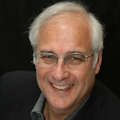I have it—You want it! Bien-Air turbines and electric handpieces
Aerosols have become quite the topic of conversation in the continuing battle against COVID-19 and as we move closer to our annual flu season. When it comes to handpieces, there is an easy solution to combating potential aerosol spray or spatter that comes with using any air-driven or electric handpiece. The solution: an antiretraction valve.
This one-way valve opens when the foot control is depressed and closes once the foot control is released. Hence, no fluid retraction from the oral cavity into the handpiece (which should always be sterilized) or the waterlines and tubing (which aren’t sterilized). Even better, the antiretraction valve is in the handpiece, not the coupler, so once the handpiece is autoclaved, the possibility of transmitting any contamination to the new handpiece on that coupler is eliminated. This is brilliant! When it comes to electric handpieces, Bien-Air offers yet another advantage: their electric handpieces with sealed heads do not depend on water cooling for mechanical cooling, reducing the amount of water needed during use. For surgical procedures such as periodontal surgery, implant surgery, or surgical extractions, Bien-Air electric handpieces can operate in concert with a sterile water pump. I would encourage you to check out the Bora and Tornado air-driven handpieces, as well as the iOptima INT and EVO.15 electric handpieces for maximum effectiveness in eliminating cross-contamination.
Howard Glazer, DDS, FAGD, is a columnist for Dental Economics. He is a key opinion leader in dental products and maintains a general practice in Fort Lee, New Jersey. Dr. Glazer is a fellow and past president of the Academy of General Dentistry (AGD). He lectures frequently on the subjects of dental materials, cosmetic dentistry, forensic dentistry, and patient management.
About the Author

Howard S. Glazer, DDS, FAGD
Howard S. Glazer, DDS, FAGD, is a fellow of the Academy of General Dentistry, American College of Dentists, International College of Dentists, American Society for Dental Aesthetics, American Academy of Forensic Sciences, and a diplomate of the American Board of Aesthetic Dentistry. He is an attending dentist at the Englewood Hospital in Englewood, New Jersey, and the deputy chief forensic dental consultant to the Office of Chief Medical Examiner, City of New York.
